Talks
"Built-in" accessibility: blessing or curse?
Whether it's in standards, browser functionality, web platform features or design system components, the reality could be anywhere from an enormous opportunity to a huge disappointment. In this talk, we'll examine how “built-in” can be effective and how it helps to remove barriers at scale.
Hidde de Vries

Hidde (@hdv) is a freelance front-end and accessibility specialist, currently working in the NL Design System team at the Dutch government. He is also involved in the W3C’s Open UI Community Group and Accessibility Guidelines Working Group. Hidde writes about accessibility and other things at hidde.blog.
What can we do as Product Managers to build accessibility into our products?
Product creation is a collaborative effort involving designers, developers, product managers, and business stakeholders. Each individual has a responsibility to ensure accessibility. As Product Managers, we have a pivotal role in shaping not only the roadmap but also the final deliverable.
So, how can we ensure that accessibility, akin to security and privacy, is integrated at every stage? Nandita will share different methods that worked to create a culture of accessibility with your team, with tangible steps PMs can and should take to build accessibility into product making.
Nandita Gupta
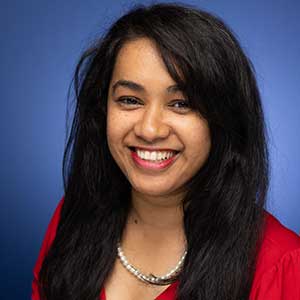
Nandita is a TEDx speaker and works as a Senior Product Manager at Cisco where she builds products that empower users to create inclusive and accessible experiences for all users.
As a Mississippi State University alumna and Bagley College of Engineering Hall of Fame inductee, Nandita found her passion for accessibility and disability advocacy and pursued her Master’s degree in Human-Computer Interaction from Georgia Institute of Technology. Nandita was named Faces of Inclusive Excellence and awarded the Diversity Champion Award in 2020 for her work that advanced the principles of diversity, equity, and inclusion at Georgia Tech.
Inclusive Design and How Google Paves the Way
Learn how Google embraces principles like simplicity and flexibility to create technology that welcomes users of all backgrounds and abilities. Discover real-world examples, practical tools, and a glimpse into the future of inclusive design.
Medha Muppala

Medha is a product designer, speaker, and Google Women Techmakers Ambassador with a background in computer science. On the professional front, she crafts delightful digital experiences and conducts usability audits & research. In her spare time, she helps early designers get started and thrive in their design careers.
The State of Mobile App Accessibility: Guidelines, Cross-Platform Frameworks, and more!
As web accessibility is broadly understood, folks are turning their attention to mobile app accessibility. On the surface, it seems like web accessibility concepts would be straightforward to apply to mobile apps, but they're quite complex. Rachael's talk will provide a snapshot of the current mobile app accessibility landscape, focused on the state of mobile guidelines, how cross-platform frameworks impact the ecosystem, and the latest and greatest testing strategies.
Rachael Yomtoob
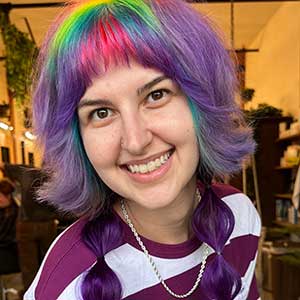
Rachael discovered their passion for accessibility while working on a project team at the University of Michigan that developed an Android application to provide indoor navigation for people with visual disabilities.
They joined the mobile team at Deque in 2018 as a web developer where they learned about both mobile and web accessibility before transitioning to a product owner and now developer advocate. Aside from being a digital accessibility engineer, Rachael is a proud cat parent to three fur babies and enjoys spending their free time at Zumba classes or diamond painting.
Accessibility for Young Coders
A lot of attention is being put on "shifting left" and inclusion of digital accessibility in higher education, but very little (or no) attention is being put on introducing accessibility to elementary school coders. This talk will examine the benefits and challenges of introducing accessibility to these young coders.
Brian Elton

Brian is the Practice Manager for Training at TPGi, so spends his days training clients on how to make their websites and digital products accessible. He has a background in front-end development and development management, having worked in digital agencies in Toronto for 15 years prior to joining TPGi.
Brian is also the TPGi Advisory Committee representative for the W3C and currently co-chairs the Accessibility Education and Outreach Working Group.
An Accessibility knowledge hub: If you build it, will they come?
We all know that accessibility is key and sharing knowledge is how to make it happen. But how do you get all your knowledge to key stakeholders and employees? How do you help teams easily adopt accessibility into different projects and roles? Niki and Olena will guide you through the steps and best practices for starting an accessibility knowledge hub. You'll learn why you need one, how to find your audience, and how to choose topics for your readers.
Niki Ramesh
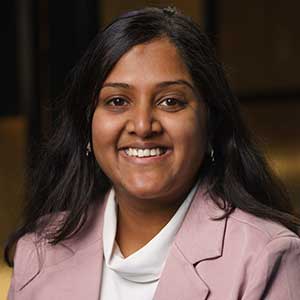
Niki Ramesh leads digital accessibility for CBC, Canada's public broadcaster and media company. She enjoys working with research and product development teams to experiment with accessibility features and learn about the needs of the disabled community. She’s CPWA-certified and a co-founder of Access to Success, a not-for-profit in disability inclusion. And she’s always up for long drives and a night of dancing!
Olena Sullivan
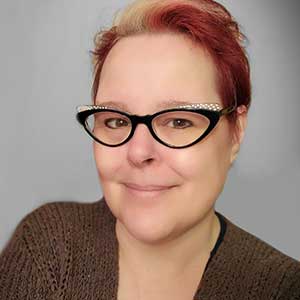
Olena Sullivan, CPACC, leads the bilingual Accessibility Hub project for CBC/Radio-Canada, Canada's public broadcaster and media company. She has collaborated with researchers and focus groups to learn about the accessibility barriers in news and children's media. A graphic designer by trade, she coded her first site in 1997, in the age of tablets, Flash and Netscape.
Advancing Accessibility
It's time to shift accessibility past the designer-to-engineer handoff & expand further left, up, down, & right into other areas. This discussion is for Accessibility/DEI leaders, or anyone looking to move digital accessibility to higher levels.
Gerard K. Cohen
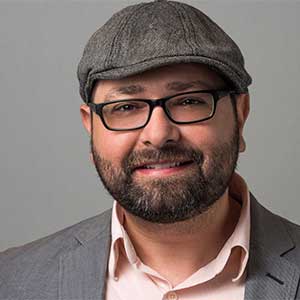
Over the past decade, Gerard has built and advised top-notch digital accessibility teams that have impacted millions of individuals worldwide. His experience ranges from supporting commercial financial applications responsible for transferring trillions of dollars globally, to enhancing accessibility on pre-Elon Twitter. Currently, Gerard drives the Atlassian Design System Accessibility Team where he collaborates with a group of exceptional designers and engineers to help enhance the accessibility of components used to build team productivity tools like Jira, Confluence, and Trello.
Gerard is recognized as a catalyst for change, igniting cultural transformation at both grassroots and executive levels. He possesses an understanding of the interdisciplinary nature of digital accessibility and effectively bridges gaps between HR, Legal, Marketing, Product, Design, Engineering and Quality Assurance teams.
He has a remarkable history of advocating for individuals with disabilities and promoting diversity and fairness in the workplace. Moreover, he is highly regarded for his expertise, as evidenced by his frequent speaking engagements at conferences nationwide and the widespread recognition of his courses on the Pluralsight learning platform as essential training for organizations worldwide.
Accessible eLearning challenges and opportunities
Online learning is the future of education. Ensuring that the content we create is accessible to all is a great responsibility for all those involved in authoring and developing eLearning material.
Join Andreea for a demonstration highlighting the impact of inaccessible eLearning content, and explore the significant challenges and opportunities to enhance inclusivity and accessibility in educational endeavours.
Andreea Demirgian
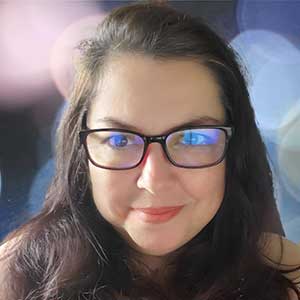
Andrea has a post-grad certificate in Accessible Media Production from Mohawk College and a Bachelor's Degree in Journalism. As a document accessibility specialist and an accessible eLearning trainer and advocate, Andrea’s passion is to enable equal access to information for everyone, regardless of their abilities.
Inclusive Design and Cognitive Disability
The importance of cognitive disability continues to increase in the field of digital accessibility. In this session, seven goals will be presented to improve the usability of digital products, particularly for people with cognitive disabilities. To accomplish the goals, numerous techniques are presented and enforced by real-world examples.
Dennis Lembree
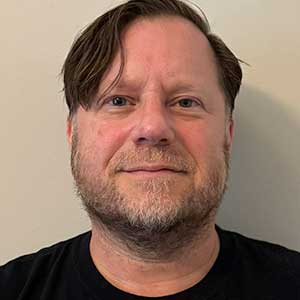
Dennis Lembree is a Senior Accessibility Program Manager at GitHub. His extensive career also includes working at Deque Systems and on the PayPal and eBay accessibility teams. He has two decades of experience in writing articles, training, and presenting on digital accessibility. He is the creator of the first podcast on web accessibility, Web Axe, and created the first accessible Twitter app, Easy Chirp. Dennis lives outside Raleigh, NC with his wife, two teenage boys, and four cats. He enjoys playing guitar, watching football and tennis, hiking, and traveling.
Holding Vendors Accountable – Designing your own accessibility vendor monitoring program
Learn how to design your own accessibility vendor monitoring program from the ground up and the most effective ways to work with vendors to create the best digital experience possible.
This session will go over everything from getting buy-in from internal stakeholders to navigating tough discussions with vendors about digital accessibility.
Jaunita George
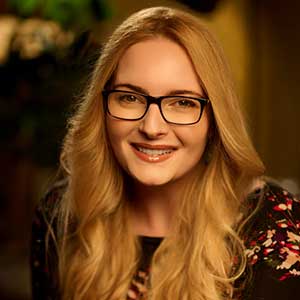
Jaunita joined Navy Federal in 2020 and works as an ADA Digital Program Manager leading the Enterprise Technical Accessibility Team. She chairs the Accessibility A11ies Community of Practice and serves on the leadership team of Navy Federal's disability Employee Resource Group. Juanita is also on the leadership team of the Internet Society’s Accessibility Special Interest Group, where she's working on developing an accessibility engineering bootcamp. She is active in the accessibility community and is passionate about creating an internet that's open, free and accessible to everyone.
Presenting Audiom: The World’s First Inclusive Digital Geographic Map Viewer and Editor
Digital geographic maps have been difficult to make accessible due to their complexity and seemingly visual nature.
Audiom, from XR Navigation, is a revolutionary research-backed cross-sensory Web Accessibility Guidelines AAA-compliant interactive visual, auditory, tactile, and text-based map viewer and editor.
Learn how both referential maps (maps where the geographic information is the most important element such as neighbourhood, transportation, and building maps), and thematic maps (maps with numeric values overlayed on the geographic features such as COVID, voting, and weather maps) can be represented to be accessible and usable to as many people as possible.
Brandon Biggs

Brandon Biggs is an entrepreneur, researcher, inclusive designer, developer, and life-long learner. He is the CEO of XR Navigation, an Engineer at the Smith-Kettlewell Eye Research Institute, and a PhD candidate at the Georgia Institute of Technology.
Brandon has a bachelor's in music from California State University East Bay and a master's in Inclusive Design from the Ontario College of Art and Design University. In 2021, he began his PhD in human-centred Computing from the Georgia Institute of Technology. He is almost completely blind from Lebers Congenital Amaurosis (LCA). His projects and ventures centre around building tools to solve some of the most difficult problems in the blindness field.
Surprising observations from usability tests
Standards and guidelines are an excellent starting point when building digital products, but to ensure that you really meet users' needs and expectations, you must involve them. Last year, Matthew ran or observed 14 usability tests, some with users of assistive technology and some with users with cognitive disabilities. In his talk, Mathew will discuss his design and build products, share findings that have impacted his day-to-day work, and discuss how to consider meeting certain WCAG criteria.
Matthew Hallonbacka

Matthew is responsible for digital accessibility at the S-Group, Finland's biggest retail chain. With a web developer background and experience with AI research projects, Mathew coaches in-house teams building digital products for the S-Group by developing their own accessibility competence and maturity with a focus on understanding the needs of our customers and colleagues with disabilities.
Using the Accessibility Tree to debug HTML
Waiting for accessibility feedback on our development work from a full audit puts us at risk of launching inaccessible HTML due to the proximity of that feedback to our release date.
This often causes our teams to pick and choose which issues to resolve leaving issues that get sent to production. This session will help you assess your code while you work on it by using the Accessibility Tree found in browser dev tools.
Learn how to use the browser accessibility tree to better understand how your HTML will be communicated to assistive technologies. This is a useful tool and process to include as you are developing new components or during code review.
Christina Adams

Christina is a Certified Professional in Web Accessibility with expertise in design and development bridging the gap between accessibility, user experience, and code practices. With a strong background in both consulting and public speaking, Christina is dedicated to helping organizations implement inclusive design principles and craft accessible digital solutions.
Accessibility Conformance Reports: Scoring with Confidence
Derek Bove will share how Indeed uses Accessibility Conformance Reports to deliver metrics on the overall accessibility of product experiences and how data-driven decisions are used for accessibility strategy.
Derek Bove
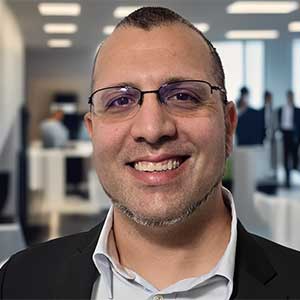
Derek worked in the accessibility industry for 20 years, focusing on assistive technology software with Ai Squared, the makers of ZoomText. More recently, Derek moved to TPGi before starting at Indeed, making a direct impact on the accessibility of Indeed’s products and ultimately helping disabled job seekers. Derek always looks at the latest trends, tools, and approaches to make technology more accessible for everyone.
Beyond Zoom: practical lessons from improving text resizing
Dive into the transformative world of Font Scaling and discover why it's a superior choice over traditional Browser Zoom for users who need larger text. We'll explore the nuances between px, em, and rem units to give you a clear understanding of which units empower better scaling and why.
Beyond theory, learn about the practical tools and techniques that streamline the adoption of accessible design. From automation to snapshot testing, find out how these resources can simplify the process for your team.
Whether you're looking to enhance your site's accessibility or just curious about the best practices, this talk will equip you with the knowledge and tools to make a significant impact.
Steven Bassett
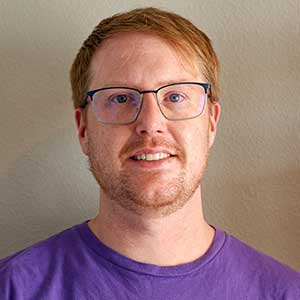
Web and Android, Digital Accessibility engineer at Airbnb. Passionate about making digital experiences more inclusive to folks with disabilities.
Decoding the Impact: Accessibility Overlays Through a Scientific Lens
Access to digital information is crucial for social inclusion and equal opportunities. Unfortunately, most websites contain accessibility errors, creating a significant barrier for users with impairments.
Accessibility overlays have emerged as a potential solution. However, despite their intended benefits and rapid market growth, accessibility overlays face significant criticism within the accessibility community. Various voices question their effectiveness and whether they meet the needs of the intended user group.
This talk details the actual impact accessibility overlays have on usability and user experience, backed by recent academic research. The results of a technical evaluation and research conducted with individuals with permanent visual impairments will be presented and discussed, adding new and supplementary information to the discussion.
Daniela Kubesch
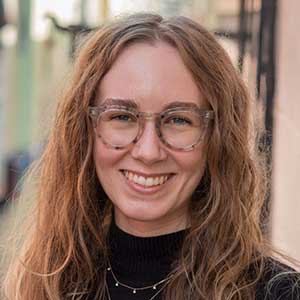
Daniela Kubesch is an accessibility engineer who is passionate about user experience and inclusive design. She strongly believes in equality and inclusion and is committed to making digital services accessible.
Daniela holds master‘s degrees in Web Engineering and Digital Service Innovation and recently joined mindscreen as an accessibility tester. Daniela is also a co-creator of a11yphant.com, a platform that teaches the basics of web accessibility.
Improving Accessibility Through Design Systems
An accessible design system provides a toolbox with clear instructions, core principles, and ready-made components. By prioritizing accessibility, these systems can promote the reusability of inclusive design patterns.
Homer Gaines
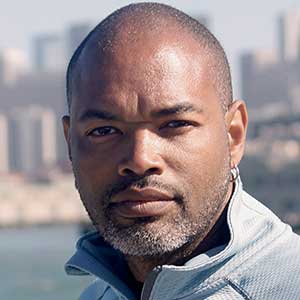
Homer is a Front-end Developer with over 30 years of experience. He has a background in Behavioural Psychology, specializing in Neurology and Graphic Design, and brings a wealth of knowledge and expertise as a Staff UI Engineer, certified accessibility professional, and international speaker focused on advancing accessible front-end development.
How can we leverage content management systems to create more accessible digital experiences?
Between design and technical limitations, achieving accessibility with a complex website can be difficult. However, with a little forethought and planning, leveraging an existing content management system (CMS) can yield incredibly inclusive solutions. Lindsay will share clear examples from her work at T-Mobile to discuss a framework she has developed for how other accessibility professionals can incorporate and elevate accessibility in a website being developed with a CMS.
Lindsay Silver
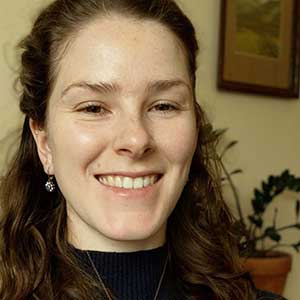
Lindsay Silver is an accessibility coach at T-Mobile where she advises and trains teams on accessible digital product development throughout the design, development, and testing lifecycles. Prior to T-Mobile, she worked as a web developer and digital accessibility consultant.
Dreaming of Accessible Development: Annotated Wishes for Designers & Devs
This talk explores actionable strategies and best practices for achieving accessible development by outlining key wishes and effective annotation techniques for designers and developers to enhance collaboration and inclusivity in digital product creation.
Hector Osborne Rodriguez
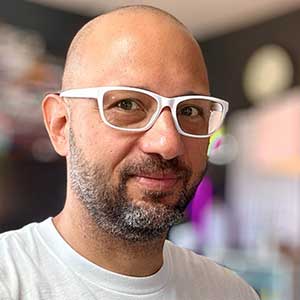
Hector has over a decade of software development and consulting working with companies all around the world. He has been specializing - but not solely focus - on eCommerce accessibility. Every day trying to learn, educate & share knowledge about accessible solutions. He's also a casual platform gamer where he finds inspiration in accessibility solutions & inclusive story telling. Currently working in Accenture as Front End Development Manager & Accessibility Champion.
The many lives of a notification
Live regions are one of the most powerful tools for improving screen reader accessibility in web applications. Still, when used incorrectly, they can turn an otherwise good experience into a completely unusable mess. They are fragile and full of undocumented nuances and gotchas, intimidating for the initiated and frustrating for those who regularly deal with them.
How do you make toast notifications work for people using screen magnification software? Why does this one error message stubbornly refuse to work with VoiceOver, even though it's fine with NVDA? How can you tell if you made a mistake, or the browser or screen reader did?
We’ll examine when and why to use or not use notifications, how to build robust live region implementations, and how to debug them. We’ll also review some specific examples, including form errors, loading updates, and announcements in a simple chat application.
Sarah Higley
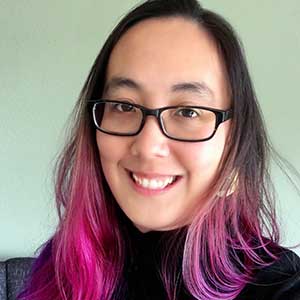
Sarah Higley is a web developer primarily working on accessibility in control libraries and chat apps. She has been horking up web code in exchange for money since 2011, and is happiest when going down weird rabbit holes or making pottery. She is currently paid by Microsoft and also occasionally by the crows in her backyard.






